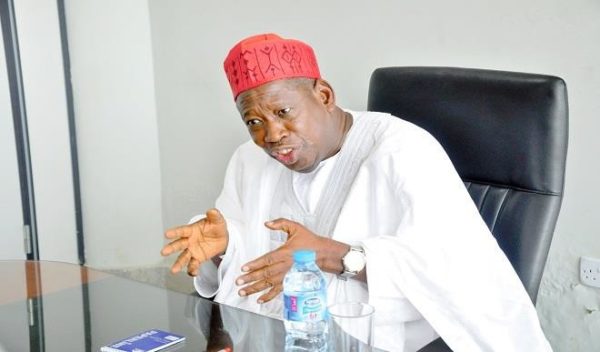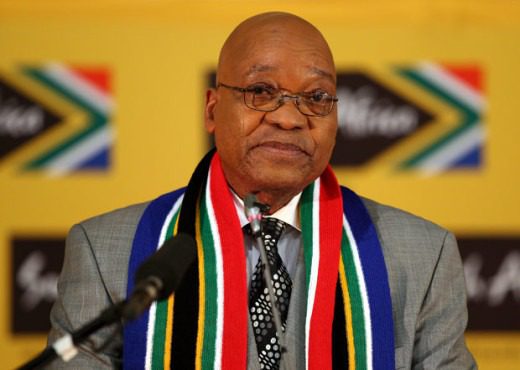Educational Issues
How Ganduje Is Repositioning Kano Education Sector -By Abba Dukawa
In the 2020 budget, Kano State Government has earmarked N52.2 billion for the education sectors this representing 25.32 percent of the total budget. This effort shows how the administration attaches importance to this sector and the governor assured people of the state that his administration readiness towards financing education.

“Why should society feel responsible only for the education of children, and not for the education of all adults of every age?” Erich Fromm
Never before millions of children been out of school at the same time, disrupting learning and upending lives, especially the most vulnerable and marginalized. In 2020, as the COVID-19 pandemic spread across the globe, a majority of countries announced the temporary closure of schools, impacting more than 91 percent of students worldwide. By April this year, close to 1.6 billion children and youth were out of school. The global pandemic has far-reaching consequences that may jeopardize hard-won gains made in improving global education.
No society can develop without proffer educational development therefore education play a vital role in the growth and progress of the society. Consequently anything serious-minded government precise its educational sector as its top priority. Inasmuch as any governments want to break its citizens from vicious ignorance and poverty. Such serious-minded governments are ensuring toward provides its citizen with a sound education in all fields of educations as this help in establishing a well rounded and stimulating society.
In spite of this challenge pandemic coupling with financial declined Ganduje administration has not relented in its determination toward bequeathing the best of education to Kano citizens at all levels. Before the administration declared free and compulsory education in the state Two-Days Education Summit held in the state where Vice President, Professor Yemi Osinbajo, was among top officials, educationists, scholars, and Development partners including DFID, USAID, UNESCO and top diplomats from United States, United Kingdom, UAE, Egypt, Saudi Arabia, among others witnessed the event.
At the lunching Governor Dr. Abdullahi Umar Ganduje said that, the objective of the summit, which heralded the policy, was “to discuss, analyze and generate ideas towards for the implementation of administration vision for free and compulsory basic and secondary education.”
At the education summit, Governor Ganduje announced abolishment the payment of school fees in all public secondary schools with effect from September 2019 and also directed funding of such schools numbering 1180 with a total students’ population of 834,366 at a total cost of about 200 million naira per month or 2.4 billion naira per annum. All these changes aimed toward achieving its free and compulsory education at all levels in the state.
However, Ganduje’s administration’s commitment to the policy was borne out of a promise he made on the assumption of office for the second term on May 29, 2019, “to provide free and compulsory education from Primary to Senior Secondary School level. It is gratifying to note that the governor recognizes the pivotal role of education as the primary agent of change in our society
To achieved the free and compulsory education from Primary to Senior Secondary School level goal Kano state government integrate the Almajiri system of education in order to streamline these schools and integrate them into the free and compulsory education programme, the administration has set up Qur’anic and Islamiyyah Schools Management Board. To achieved its objectives of the policy in view of this daunting challenge, the government has set up a committee to conduct a census of all out-of-school children with a view to updating the available data and ensuring adequate planning in preparation for the implementation of this all-important education policy.
Regardless of the administration’s outstanding financial commitment in executing infrastructural development in the state Kano like the rest of states government in the federation not immune from financial difficulties following the collapse of crude oil prices which triggered unpleasant memories to all tiers of the governments in the country. It has become necessary for Ganduje’s administration to explored other ways toward funding its free and compulsory education from Primary to Senior Secondary School level in its foresight the administration forwarded Kano State Education Development (Establishment) Support Board Bill 2019 to the State House of Assembly for passage.
The idea behind creating the board was also in consideration of the many challenges bedeviling the education sector that, included dilapidated and inadequate infrastructure, shortage of instructional materials, dearth of manpower; which is fast constitute a cog in the wheel of progress for the implementation of the free and compulsory education policy. The board charged with the responsibility of collecting, managing, and disbursing funds to public institutions for the overall development of education in Kano.
The fund to be collected, managed and disbursed will come from sources, that include 5% of monthly Internally Generated Revenue (IGR), 2% of the statutory allocation of each local government area, donation from corporate bodies and individuals, endowments, direct or indirect grants, and investment returns, among other legal sources. While the distribution of the fund should be in the following formula: 17.5% to state-owned universities; 12.5% to other state-owned tertiary institutions under the ministry of education; 35% to secondary school education; 25% to primary school education; and 10% to Integrated Almajiri and Islamiyya education.
Truth can never be silent, politics aside even those in the opponent’s side can be honest that can appreciate Ganduje’s administration commitments for distribution of over N20 million each to Community Promotion Council (CPC) to 44 local governments of the state. if truth be told this is a remarkable feat especially at this critical economic challenge coupling with declined income both from federation monthly allocation and internal revenue generation for a state like Kano able to distributes over of N880 million to CPC aimed at rehabilitation of primary schools within a period of three weeks. In the same vain state government also paid NECO registration fees for students of public schools in the state as the measure was also part of the administration’s avowed commitment to ensuring that the less-privileged enjoy better education and the government paid over N424 million for the total number of 38,632 students as registration fees.
In the 2020 budget, Kano State Government has earmarked N52.2 billion for the education sectors this representing 25.32 percent of the total budget. This effort shows how the administration attaches importance to this sector and the governor assured people of the state that his administration readiness towards financing education, being the bedrock for societal development, saying It is because of the importance we attach to this sector that our budgetary provision for education is over 26 percent.
Dukawa can be reached at abbahydukawa@gmail.ccom




















